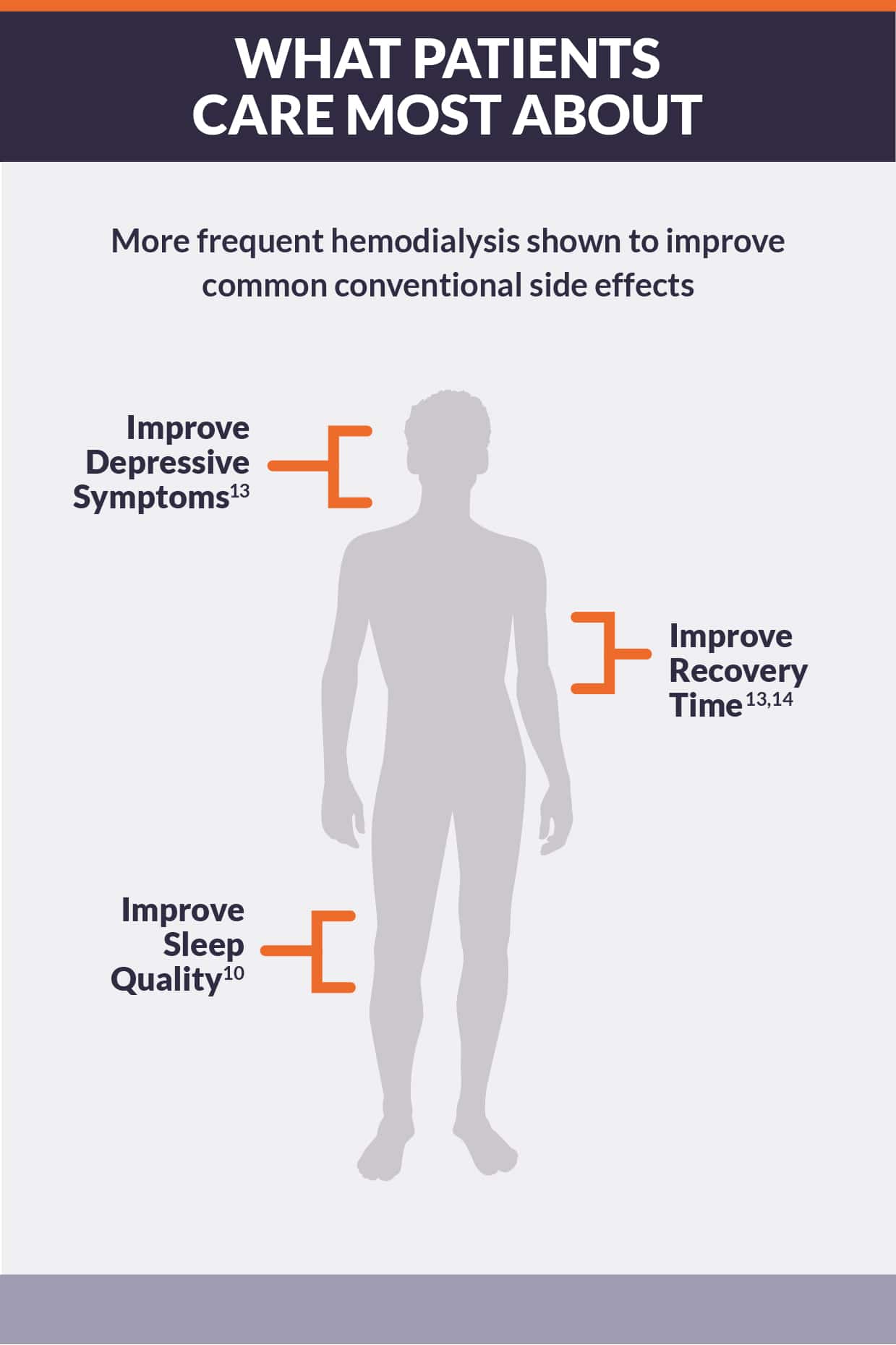Intensive hemodialysis has improved physical and mental health-related quality of life
Dialysis patients commonly present limitations in both physical and mental health-related quality of life (HRQOL), with an especially high prevalence of depression.1,2 Poor HRQOL may be partially due to inadequate dialysis, resulting in physical symptoms.3 Diminished health-related quality of life is associated with increased risks of morbidity and mortality.4
Studies show intensive hemodialysis may positively impact HRQOL
- In three randomized clinical trials comparing intensive and conventional hemodialysis, intensive hemodialysis increased physical and mental component summary scores from the 36-Item Short Form Health Survey (SF-36).5,6,7,8
- In another large prospective study, initiation of short daily hemodialysis was followed after 12 months by improvements in all SF-36 domains, sleep quality, and symptoms of restless legs.9,10
- In a small study of nocturnal hemodialysis, apnea and hypopnea episodes per hour decreased by almost 70% after conversion from conventional hemodialysis.11
But some studies suggest weak effects on depression and objective physical performance
- Two of the aforementioned, randomized clinical trials failed to demonstrate statistically significant effects of intensive hemodialysis on the Beck Depression Inventory (BDI) score, despite a significant decrease in BDI score in the prospective study of short daily hemodialysis.5,6
- Intensive hemodialysis may not improve objective physical performance and can increase burden on caregivers in the home setting.7,12
Conclusion
Evidence from randomized clinical trials and observational studies showed intensive hemodialysis positively addressed both physical and mental aspects of HRQOL, relative to conventional hemodialysis. However, the clinical significance of published effects, including specific schedules, of intensive hemodialysis relative to conventional hemodialysis at nine-point improvements may merit further investigation.7 Therefore, the data should not be construed to suggest that intensive hemodialysis is a necessary modality for improving HRQOL, or that intensive hemodialysis will improve HRQOL, rather, data should be discussed during clinician-patient conversations about dialysis modality selection or transition.
